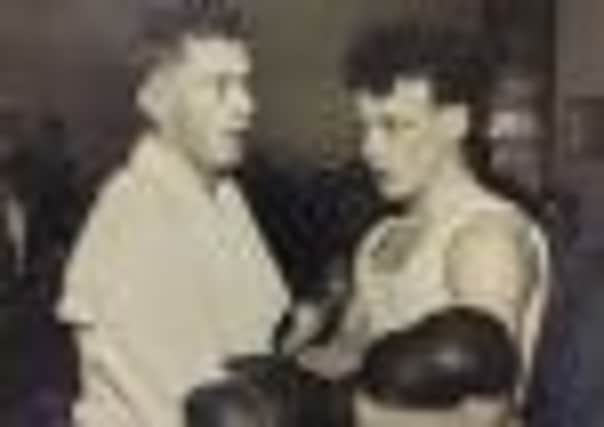NOSTALGIA: Club offered a range of activities


Richard Hancock, chairman of the club’s management committee, and current president of Chichester Rotary Club, was prompted to bring in the photos by two recent articles in the paper. Firstly the article of January 24 in the nostalgia section regarding the Shippam dynasty, and the write-up in January 31’s edition of the charity boxing event organised by the Rotary Club of Chichester Priory.
The club’s link with boxing and the Shippam dynasty is that boxing was, and remains today, one of the many activities organised by the club.
Advertisement
Hide AdAdvertisement
Hide AdMeanwhile, Bassil Shippam was a big supporter of the club, and one of its benefactors. His setting-up of the Alsford Trust Fund has seen the club benefit financially over the years.


From the club’s beginnings in 1922, many sporting activities were organised, including boxing matches.
A number of boys took part, including John Weller, the father of singer songwriter Paul.
From the outset the club was affiliated to the Southern Counties Amateur Boxing Association.
CLUB BEGAN IN 1922
Advertisement
Hide AdAdvertisement
Hide AdThe boys’ club came into existence more than 90 years ago, when a meeting of Chichester Rotarians agreed upon its formation.
The meeting, held on January 9, 1922, was chaired by president of the rotary club William Doman, and the first honorary secretary of the boys’ club committee was Sidney Bastow.
According to Richard, the Doman and Bastow families both had premises in North Street, the former being linen drapers and the latter pharmacists.
Within months of the club’s formation, it had 45 members. Although it was under the control of the rotary club, two boys were added to the club committee to help with its running.
Advertisement
Hide AdAdvertisement
Hide AdIn 1923, the club’s current premises of 34a Little London was purchased for the sum of £350 and opened by the then MP, Sir William Bird.
The club’s premises has become an invaluable asset, as its funding was withdrawn by West Sussex County Council in 2011 as part of a money-saving measure.
Now, the premises is hired out during the day to a number of other clubs and societies.
Richard said this was reflected in the club’s masthead: ‘Chichester Boy’s Club – serving the youth and community of Chichester’.
Advertisement
Hide AdAdvertisement
Hide AdThe club is now mixed, with boys and girls, but the name remains.
A CHANGE OF NAME?
Richard said a changing of the name was suggested, but all club members wanted to keep it: “They said Chichester Boys’ Club has a history,” he said.
During the early 1930s the club became affiliated to the National Association of Boys’ Clubs (NABC) and its president, the Duke of Gloucester, paid a visit in 1938.
To commemorate the formation of the club, an anniversary service was held each year and among preachers was the then Dean of Chichester and Bishop George Bell.
Advertisement
Hide AdAdvertisement
Hide AdAs part of the club’s activities, football was played in New Park, cricket at Oaklands Park, and cross-country running took place around Summersdale.
Boxing took place in the games’ room as did the playing of pool. The boys were divided into houses and achievements noted by the award of club colours.
Books could be signed out from a library and shows put on to entertain residents. Arts and crafts and cooking were yet other activities.
During the war a bomb struck the building, but the club only remained closed for one day.
Advertisement
Hide AdAdvertisement
Hide AdForty-four Old Boys lost their lives on active service and a bronze plaque commemorating them was unveiled on January 8, 1956. The previous year by reconfiguring the space after the bomb damage and having raised money for an enlargement of the facilities, the Memorial Hall was formally opened.
Additionally, a workshop was created and a room for boxing training. Boxing has always remained a big part of the club since its inception, and remains so today with sessions taking place during the week.
One of the things the club prides itself on nowadays is giving young people the opportunity not to just ‘sit at home in front of the computer’, according to Richard.